The electronic cigarette

Former smoker Hon Lik of Beijing demonstrates the electronic cigarette he invented. The device doesnt burn, but instead uses a small lithium battery to atomize a liquid solution of nicotine. The “smoke” inhaled is a vapor similar to the stage fog used in theatrical productions. (Barbara Demick / Los Angeles Times)

Workers assemble electronic cigars at the Ruyan factory in Tianjin, China. The company is planning a big push in the U.S. this year. (Greg Baker / Associated Press)
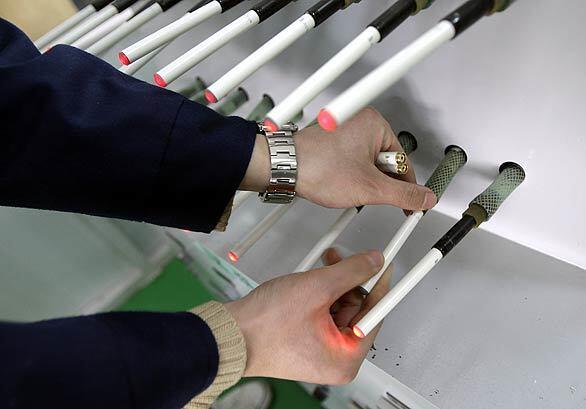
A worker tests the lights on the tips of the electronic cigarettes, which are activated with each drag. (Greg Baker / Associated Press)
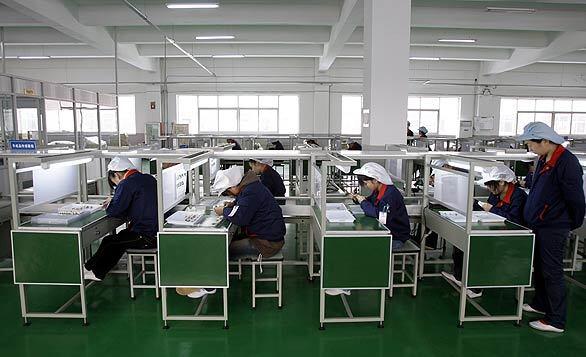
Workers assemble cigarettes at Ruyan’s factory. The reusable devices sell for about $145, with the nicotine cartridges going for about $9 for the equivalent of five packs of cigarettes. (Greg Baker / Associated Press)
Advertisement

Electronic cigars are also made at the Ruyan factory in Tianjin. (Greg Baker / Associated Press)
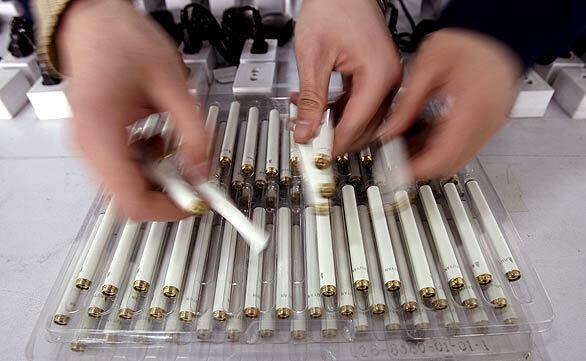
Although China is the birthplace of the electronic cigarette, the United States is considered a far more promising market because of the higher price of cigarettes and the prohibition on smoking in many indoor spaces. (Greg Baker / Associated Press)
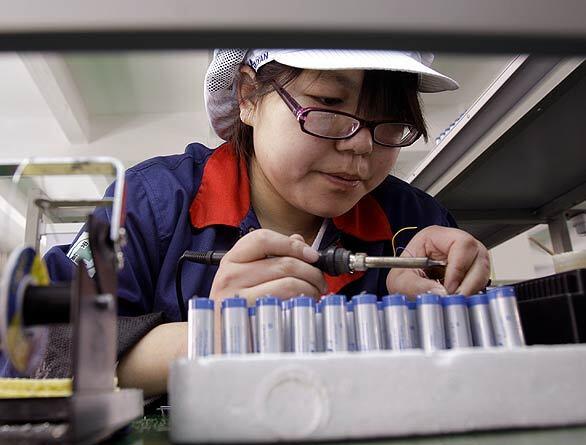
A worker solders a battery to an electronic cigar. (Greg Baker / Associated Press)
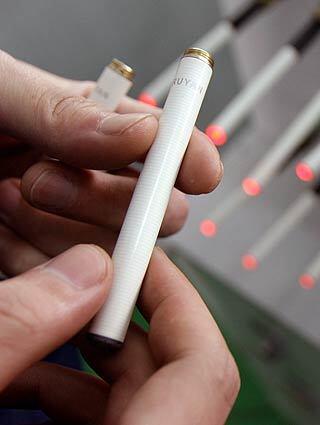
A partially assembled electronic cigarette. Marketers refrain from touting e-cigarettes as a smoking-cessation aid, in part because under U.S. law, health claims would make the devices subject to FDA approval. (Greg Baker / Associated Press)







